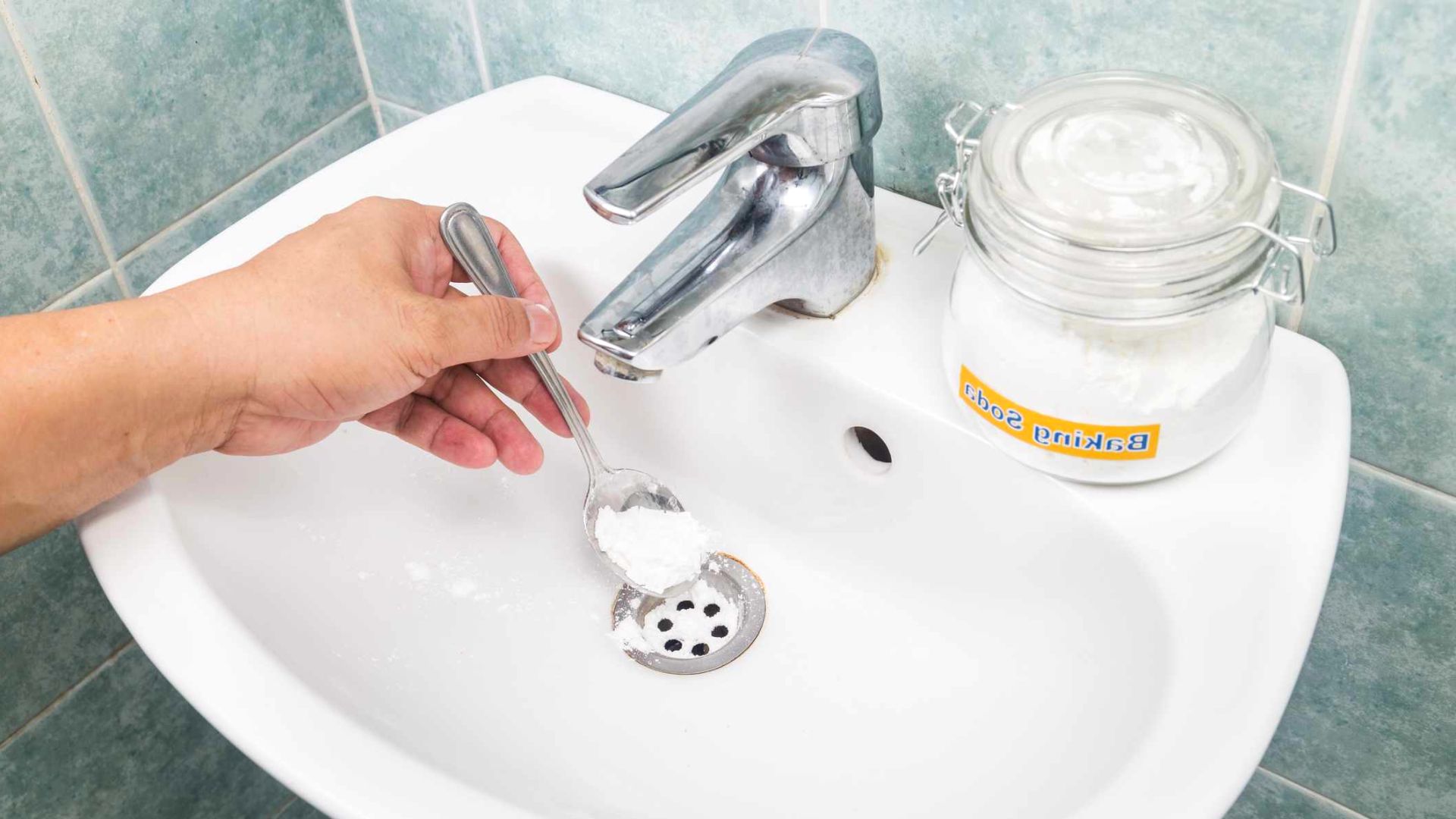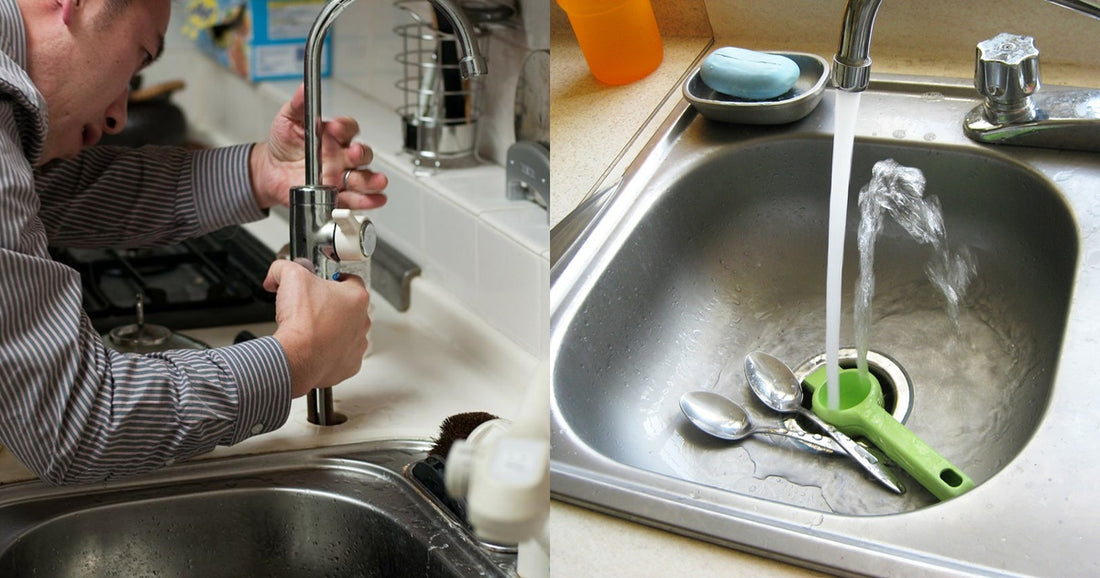Handy Tips For Correcting A Slow-Draining Sink
Handy Tips For Correcting A Slow-Draining Sink
Blog Article
Each person has their private thinking when it comes to 4 Tips to Fix a Slow Draining Sink.

Introduction
We've all been there: You're cleaning your teeth or washing your hands, and you notice the water pooling in the sink. As opposed to rapidly swirling down the tubes, it remains, transforming your once-refreshing early morning regimen right into a miniature swamp scene. A slow-draining sink isn't just annoying; it's often a sign of larger plumbing issues lurking underneath the surface area. The bright side is that a lot of slow-draining sinks can be repaired with a little know-how, a couple of standard devices, and some perseverance. Prepared to tackle this task head-on? Let's roll up our sleeves and dive right in.
Recognizing the Reasons For a Slow-Draining Sink
Prior to you begin poking around in your pipes, it assists to recognize what may be creating the stagnation. Understanding the source makes it simpler to select the best solution.
Common Perpetrators Behind Slow Drain
So, what's obstructing points up? Generally, it's a blend of everyday particles-- assume hair, soap residue, tooth paste deposit, and remaining food fragments. With time, these little bits collect and cling to the pipe wall surfaces, slowly narrowing the passage and making it harder for water to pass through. In many cases, natural resource from tough water can additionally contribute to the gunk, developing the best storm for persistent obstructions.
When is it Time to Do Something About It?
If you see the water draining slower than normal, it's a great idea to intervene earlier rather than later. Waiting as well long might cause complete obstructions, undesirable odors, and even pipe damage. If the water takes greater than a few seconds to clear out after shutting off the faucet, consider it a warning and get ready to put on your DIY hat.
Tools and Products You'll Need
The right tools make all the difference. The good news is, you will not require a fully stocked plumber's van to finish the job.
Vital Devices for DIY Repairs
A plunger is your best beginning factor. A tiny, sink-sized plunger creates suction that can displace small clogs. For more persistent clogs, a drainpipe serpent (often called a plumbing professional's auger) functions wonders. A set of gloves, a flashlight, and possibly a set of protective safety glasses are also convenient.
Suggested Cleaning Solutions
Moderate dish soap and hot water can aid break down greasy accumulation. A mix of cooking soda and vinegar is a time-tested home remedy, and enzymatic cleaners supply a more environment-friendly approach. Keep chemical drain cleansers as a last resource, as they can be rough on your pipes.
Security First: Precautions and Preparations
Before you launch into unclogging setting, think about safety and security. You're managing possibly filthy water and particles, so slip on a set of gloves. If you're utilizing chemical cleansers, make sure the area is well-ventilated and adhere to the directions on the tag.
Safety Equipment and Workspace Setup
Put down some old towels or dustcloths around the sink location to catch dashes. Clear away any items that could get in your method, like soap dispensers or toothbrush owners. Make certain you have good lights-- grab a flashlight if required.
Step-by-Step Guide to Fixing a Slow-Draining Sink
Currently, let's enter into the nitty-gritty. This detailed process will certainly direct you via easy strategies to restore your sink's drain.
Action 1: Remove and Clean the Stopper
Often, the stopper (that little plug you lower to obstruct water) is the first offender. Remove it carefully and clean off any type of hair or crud entraped around its base. Wash it thoroughly before placing it back in position.
Action 2: Utilize a Bettor to Dislodge Particles
Got that bettor ready? Setting it over the drainpipe and give it a couple of company pumps. The concept is to create suction that can loosen any obstruction. If you see little bits of particles drifting up, you get on the right track.
Step 3: Try a Drainpipe Snake or Wire Hanger
If the bettor does not suffice, it's time to bring out the drain snake. Gently feed it into the drain and spin as you go. You could really feel some resistance-- that's most likely the clog. Maintain turning and pulling up until you eliminate the obstruction. If you don't have a drain serpent, a straightened out cord hanger can work in a pinch.
Tip 4: Apply a DIY Drainpipe Cleanser
A natural cleaner made from cooking soda and vinegar can break down recurring gunk. Put half a mug of cooking soda right into the drain, complied with by half a cup of vinegar. Allow it fizz for about 15 mins, after that flush with hot water. This chemical reaction frequently does marvels for minor blockages.
Tip 5: Rebuild and Evaluate the Sink
Put every little thing back with each other and run the tap. Does the water now swirl down the tubes at a respectable speed? If yes, provide yourself a pat on the back. Otherwise, don't despair-- there are still a few more dress up your sleeve.
Alternative Techniques for Stubborn Clogs
Not all clogs are developed equal. If your sink still refuses to cooperate, consider these alternative remedies.
Sodium Bicarbonate and Vinegar Technique
We already discussed this, however it's worth keeping in mind once again. This gentle, environment-friendly technique is safer than chemical cleansers and typically quite efficient.
Chemical Drainpipe Cleaners
Enzyme-based cleansers make use of natural bacteria to digest raw material. They're an excellent choice if you're wanting to avoid rough chemicals. Just keep in mind, they may take a bit longer to work their magic.
Chemical Drainpipe Cleaning Company: Pros and Cons
Chemical cleaners can blow up through hard clogs fast, but they're not without drawbacks. They can create warm and fumes, damages pipes if made use of exceedingly, and position ecological threats. Utilize them sparingly, and constantly follow the directions thoroughly.
Safety Nets to Maintain Your Sink Flowing
Prevention is the most effective cure. By adopting a few straightforward habits, you can maintain your sink from slowing down to begin with.
Routine Cleaning Habits
Wipe down the sink container and fixture location consistently. Eliminate hair or food particles prior to they have a possibility to wash down the drainpipe.
Preventing Harmful Compounds Down the Drain
Think twice before unloading coffee grounds, grease, or coarse vegetable scraps down the sink. These offenders hold on to pipeline wall surfaces, creating blockages in time.
Routine Maintenance Checks
Arrange a quick regular monthly inspection. Run hot water with the sink for a couple of mins, paying attention to the flow. If it appears slow, act fast before it becomes a full-blown obstruction.
When to Call an Expert Plumber
Often, despite exactly how hard you attempt, that block simply will not budge. That's when it's time to generate the pros.
Indicators That Indicate a More Severe Problem
If your sink drains slowly despite multiple attempts, or if you notice water backing up in other components (like your shower or toilet), you may have a more severe pipes problem hiding deeper in the system.
Balancing DIY Initiatives with Expert Help
While DIY can conserve you money and offer a sense of success, there's no shame in calling an expert. A specialist plumbing can evaluate your entire plumbing arrangement, guaranteeing there's no underlying damages or long-term problem that could cost you a lot more in the future.
Contrasting Prices and Long-Term Solutions
Before choosing, take into consideration the big picture. An economical, quick fix may solve the issue temporarily, yet investing in a more long-term option could conserve you money and stress and anxiety in the long run.
Evaluating the Expenditures of Do It Yourself vs. Specialist Repairs
DIY solutions commonly cost bit more than the cost of a bettor or a bottle of cooking soda. Expert services, on the other hand, featured a price tag however might avoid repetitive problems and pricey repairs later.
Purchasing Top Quality Fixtures and Upgrades
If your sink's design adds to constant clogs, it might be worth upgrading to higher-quality fixtures or changing the plumbing layout. Consider this an investment in your house's capability and convenience.
Final thought
A slow-draining sink can seem like a small irritation, but it's frequently a sign that your plumbing needs a little TLC. By recognizing the root causes, utilizing the right devices and methods, and dedicating to basic safety nets, you can keep your sink streaming easily. And when all else falls short, never wait to call a specialist-- your home's plumbing is worth the financial investment in care and maintenance.
4 Tips to Fix a Slow Draining Sink
Removing the Pop-Up
This is a great place to start when it comes to troubleshooting a slow draining sink. If your sink has a pop-up, carefully take it out and remove debris that has built up around the tool. This will also allow you to see if there are any significant blockages in the drain that you can pull out on your own to help clear up the issue.
Use a Zip-It Tool
Like a snake for a large drain, a zip-it tool helps clear out any debris or hair from a sink drain. A tool like this can be used with a drain that pops out or not as it s thinner than most snake-like tools.
Use a Drain Cleaner
Whether making an at-home cleaner or buying a solution at the store, this is a common fix many turn to when it comes to a slow draining sink. There are several options available for purchase at local supermarkets, but for those who prefer to create their own solution, one of the most common is the following.
How to Unclog a Drain Naturally
Pour boiling water down the drain Pour cup of baking soda down the drain Pour cup of vinegar down the drain Wait 10 minutes Pour boiling water down the drain again Turn on the hot water faucet to clear out the solution Use a Plunger
As a worst-case scenario option, a plunger may be a good option for those who are still struggling to get debris out of their drain. This could be especially useful if there is a large item that you suspect may be significantly stuck down the drain.
https://www.abaileyplumbing.com/blog/2021/august/4-tips-to-fix-a-slow-draining-sink/

We had been brought to that article on Solved! How to Fix a Slow Sink Drain from an acquaintance on our other website. For those who liked our blog post plz don't forget to pass it around. I thank you for your readership.
Click Here Report this page